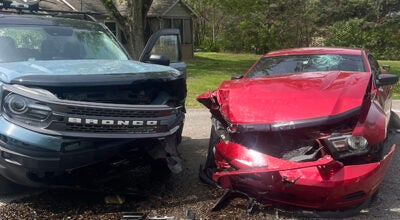Helmet repeal awaits Snyder signature
Published 11:53 pm Wednesday, April 4, 2012

Motorcycle riders in Michigan won’t have to wear helmets anymore if Gov. Rick Snyder signs a bill that would repeal the state’s mandatory motorcycle helmet law.
Several southwest Michigan motorcycle riders are crossing their fingers and hoping Gov. Rick Snyder will sign a bill repealing the state’s mandatory motorcycle helmet law.
Last week, the Michigan Senate approved a House bill to allow riders over the age of 21 to ride without a helmet.
The bill is awaiting Snyder’s decision.
Riders believe Michigan would see an influx of out-of-state motorcyclists — and tourism dollars — if riders were allowed to choose whether or not to wear a helmet.
“If you want to wear it, great. If you don’t, you shouldn’t have to,” said 47-year-old Stacy Meek, owner of Meek’s Auto Body and Custom in Niles.
There are 20 states, including Michigan, with laws requiring motorcyclists to wear a helmet. Twenty-seven states, including bordering states Indiana, Ohio and Wisconsin, require only some riders to wear helmets.
Larry Gilson, 39, of Dowagiac, said he has talked to hundreds of riders from Indiana who refuse to ride in Michigan because of the helmet law.
“They don’t own a helmet, and they aren’t buying one,” Gilson said.
Another rider, 50-year-old Mike Johns, of Buchanan, said Michigan’s helmet law drives participation down for charity rides in the state.
“South Bend might get 6,000 people, while Benton Harbor only gets 300. What does that prove?” he said.
Supporters of Michigan’s helmet law say it helps save lives and keeps down insurance costs.
Lori Conarton, of the Insurance Institute of Michigan, said death rates from head injuries have been shown to be twice as high among motorcyclists in states with no helmet laws or laws that only apply to young riders.
Citing a University of Michigan study, Conarton said riders who wrecked and were not wearing a helmet pay on average 20 percent more in hospital costs than those wearing helmets.
Meek said helmets are effective when accidents occur at less than 15 miles per hour. When wrecks occur at speeds greater than that, not so much.
“The helmet is just going to keep you pretty for the funeral,” Meek said.






